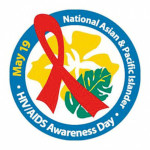In many Asian and Pacific Islander (A&PI) cultures, banyan trees are recognized for their lush, sheltering foliage and strong root systems. Appropriately, the San Francisco–based A&PI Wellness Center named its campaign to eliminate HIV stigma in its community after the tree. Launched in 2004 and supported by the Centers for Disease Control and Prevention, the Banyan Tree Project (BTP) bolsters HIV education in A&PI communities nationwide through panels, conferences, podcasts, print media and televised public service announcements. The project also holds special events each year to commemorate National A&PI HIV/AIDS Awareness Day, May 19.
According to the National Institutes of Health, only 30 percent of the A&PI community has ever been tested for HIV, the lowest percentage of any minority group in the United States. Moreover, roughly 30 percent of positive Asians and Pacific Islanders are unaware of their status. And nearly 40 percent who test positive develop AIDS in less than 12 months after that test.
“One of the major structural barriers [to testing] is fear of stigma and discrimination as well as the silence and shame that exist around issues of sex, homophobia and HIV/AIDS,” Bhupendra Sheoran, MD, associate director of community development at the A&PI Wellness Center, told POZ. “This is further complicated by the shame that an individual is believed to bring to his/her family if they test positive.”
But BTP is changing all of that. Head to banyantreeproject.org to join the fight.
The Giving Tree
Helping Asians and Pacific Islanders turn over a new leaf with HIV






Comments
Comments